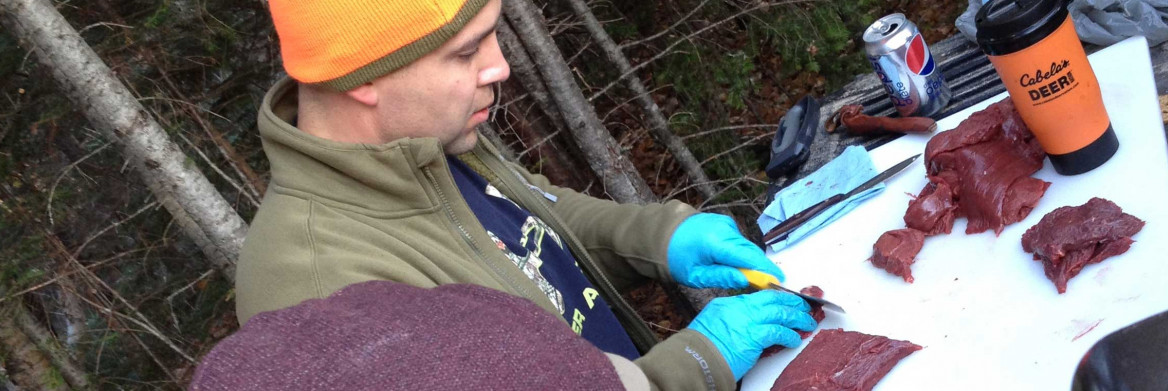Crouched amongst the trees before dawn, a group of youth, Mi'kmaq community members and RCMP officers discussed moose hunting strategies over an outdoor breakfast. Excited whispers travelled through the unlikely hunting group, put together by new officer Cst. Jason Gauthier and his mentor, Cst. Adam Peter-Paul.
"Kids were saying, 'There's nothing to do in this community,'
" says Gauthier, a constable in Elsipogtog First Nation, N.B. "We wanted to create an activity where the youth and adults could get together and bond.
"
Under the guidance of Peter-Paul, Gauthier organized the moose hunt with members of the reserve to improve community relationships. The hunt was part of Gauthier's final project to pass the RCMP's Field Coaching Program, which helps new police officers transition to operational duty.
After six months of on-the-job training, organizing the initiative was a culmination of everything Gauthier had learned to date. It was also the final step before he could become a full-fledged RCMP officer, also known as members.
"These projects connect new members to the community,
" says Cpl. Mike McFadden, field coaching co-ordinator for New Brunswick. "It lets the community know them, and it lets them understand the values that community holds — it's not all about law enforcement, it's also mediation, community work and problem-solving.
"
This year, nearly 900 freshly graduated constables joined detachments across Canada to begin their in-field training.
Real experience
Field coaching is an integral part of training for all new RCMP officers. Following basic police training at Depot — the RCMP's national training centre — the Field Coaching Program helps new members apply their acquired knowledge and skills in an operational setting, with guidance from an experienced RCMP officer.
"It's like part two of basic training, it's the practical application of things they learn at Depot,
" says McFadden. "The coaches provide a bridge between theory and practice.
"
The RCMP formalized the national Field Coaching Program in 1998. While the curriculum is consistent across the country, each member's experience is different, depending on the community they are posted to.
In New Brunswick, McFadden drives out to meet each new officer who starts in his division. Since there are only about 40 new members each year, it's easy for him to keep tabs on the coaching teams.
British Columbia — which receives more than 300 new members per year — handles their field coaching program a little differently. Cpl. Heather Kent is in charge of a full-time field coaching unit of four employees, who make sure each new member stays on track.
"This program is the foundation of leadership in the RCMP,
" says Kent. "We need to invest the time, energy and effort into giving new members the best possible start to their careers because this is the future of the force.
"
In the field
For the first two months of field training, new police constables shadow their coaches, learning by observation. The pair is assigned to the same shifts for the entirety of training. As the new member becomes more comfortable, they slowly start helping out where they can, under the close eye of their coach.
If they are deemed competent after the first two months, they can begin working more independently with less and less supervision.
"At first, I wanted to set the ground rules, we were just co-workers,
" says Peter-Paul about Gauthier. "I told him what I expected, my personal values and how I police. But once I realized that he was eager to learn, I was like, 'I can be friends with this guy.'
"
If the new member isn't up to par by the two-month mark, they work with the coach and divisional field coaching co-ordinator to develop a learning plan. At that point, the direct coaching period can be extended beyond the standard six months.
For Peter-Paul and Gauthier, the Field Coaching Program ran without a hitch — they now work as partners in Elsipogtog.
As for the moose hunt, Gauthier, Peter-Paul and the residents of Elsipogtog all deemed the project a success. At the end of the trip, the group sat around a campfire, cooked up some moose meat and talked about the day.
"I like teaching,
" says Peter-Paul. "When I'm passionate about something and I can transfer that passion to someone, that's what makes it worthwhile.
"
